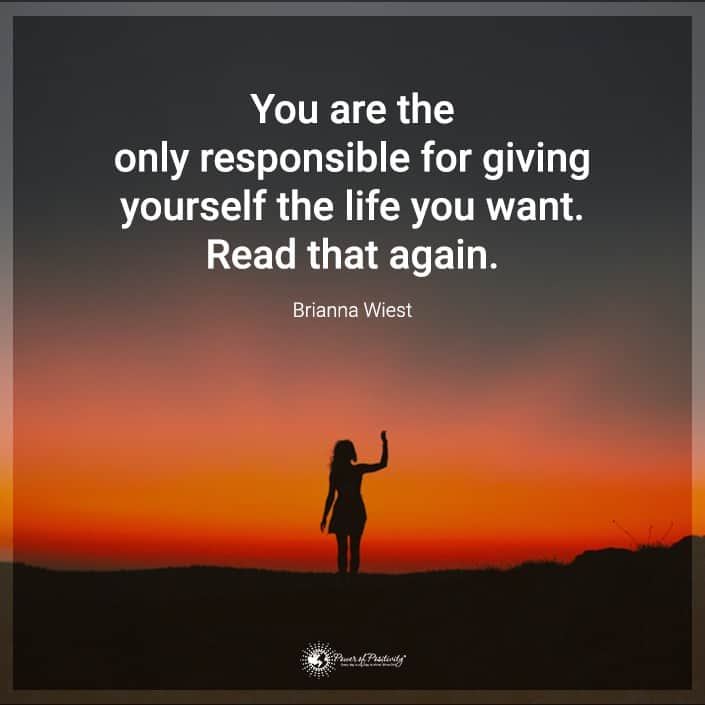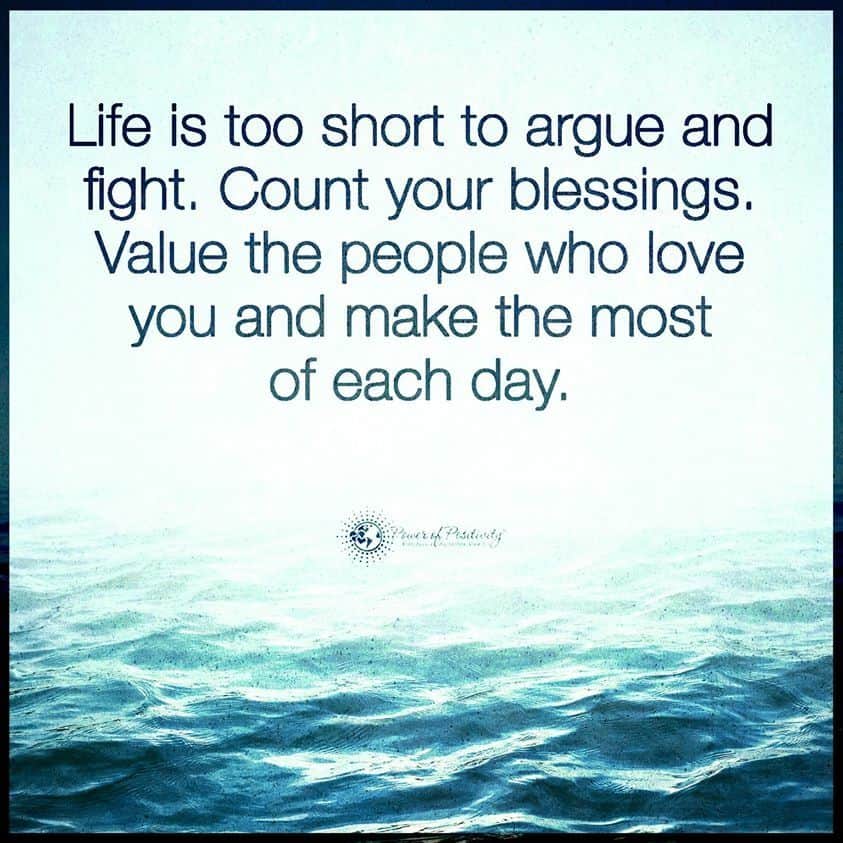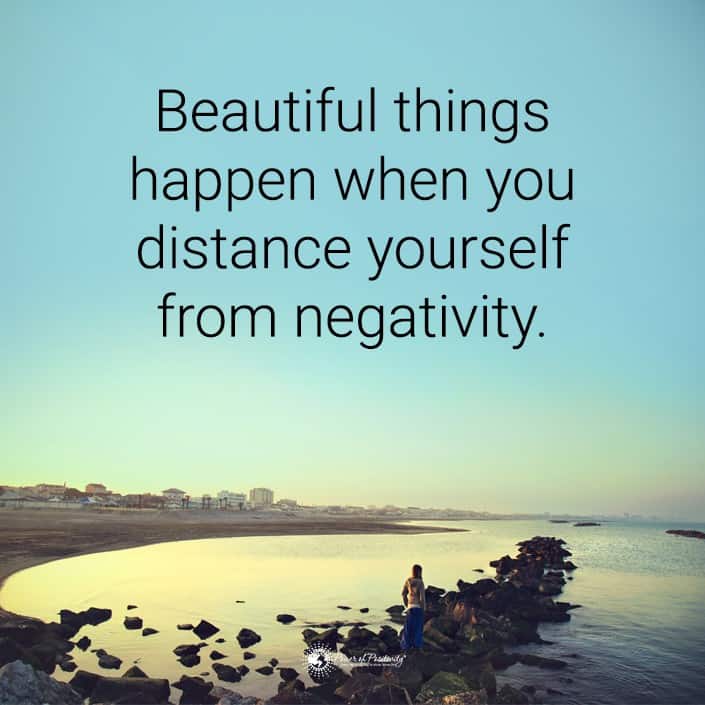Do you ever find yourself thinking you’re above other people? Do you tend to think others are worse than you or find fault in the people around you? It’s a big mistake! Looking down on others can destroy your own self-worth.
If you relate to those statements, then, unfortunately, you’ve been killing your own self-esteem! But how?
5 Ways Looking Down On Others Destroys Your Self-Confidence
Here are five ways looking down on others destroys your self-confidence and how to stop it in 4 ways.
 1. You Don’t Focus On Yourself
1. You Don’t Focus On Yourself
Focusing on looking down on other people also means that your attention is fixated on other people in general. It takes away the time that you could use to spend on yourself. That can easily cause anyone to lose touch with who they are.
Being confident involves being a little selfish about yourself. It means taking the time to focus on who you are, be aware of your strengths and weaknesses, and making yourself feel good about yourself and in general. You can’t do that if your attention is too busy being spent on random others.
2. You Get A Skewed View Of Others
Social comparison isn’t an inherently negative thing if you’re doing it correctly. Learning to reasonably take note of what you appreciate or admire in others can inspire you to do better and change positively.
Of course, the issue is that looking down on others isn’t the “correct” way to do this. It means you’re only finding fault in other people, and you can’t learn from what you dislike about them.
Many people who seek social comparison go about it this way or in a toxic manner, seeking only to seek self-esteem boosts or self-enhancement. The problem with this is that they do so via distortion to gain inauthentic positive thinking out of it. This means they:
- Make upward social comparisons, where they look “up” at others, to justify their poor performance: “They’re so much better at this than me because they’ve been training for years, of course, I’m not doing as well!”
- Make downward social comparisons, where they look “down” on others, to make themselves feel better: “I’m not actually doing that badly, look at her – she’s way worse than me!”
- Completely avoid making any comparisons or making certain types of comparisons if they don’t want an honest self-evaluation: “Whatever, who cares how I’m doing, it doesn’t even matter!”
This is a form of psychological denial. It skews reality in your favor but makes you dependent on that skewing, forming a vicious downward spiral. You begin to need these biased comparisons to feel good about yourself, as you’ve not tried to find confidence in more productive ways.
3. You Define Yourself By Others’ Standards
The standards of other people are their own. When you look down on others, you’re performing acts of comparison, but that comparison means you’re focusing on how they conduct themselves. It may not seem like it, but you’re tangling up their standards with yours.
Take, for example, social media. Most studies reveal that seeing someone doing well or achieving something on social media can often reduce self-esteem and positive thinking, even if you also feel happy for that person. So when you see someone doing well on social media and look down on them, it’s pretty easy to fall into that trap regardless.
Acting high and mighty doesn’t stop you from subconsciously comparing yourself to others. To put others down, you have to be performing some comparison. Of course, those comparisons are pointless. Each person is battling their own demons and focusing on their own growth. Putting any link between your journey and theirs is a surefire way to damage your self-esteem by these arbitrary standards.
4. You Don’t Accept Yourself
While it’s fine and healthy to make decisions about who you want to spend your time on and who you don’t, there’s a line to be drawn at deciding if someone is “worthy.” A lot of the time, these kinds of thoughts and put-downs are a projection of your own trouble accepting yourself.
Self-acceptance is the key to self-confidence. Putting others down wastes energy on your non-acceptance of others. It shouldn’t matter if you accept others or not – all you have to be at peace with is yourself and who you are.
5. You Don’t Think About What Makes You Who You Are
True self-confidence comes from the ability to love all the parts of you and accept them for what they are. If you’re putting others down, you forget that they have their own factors that make them who they are, just like you do. Unfortunately, that also often means you don’t think about what makes you unique! For example:
· Your Past
Your past may have pain, messiness, or even just some things you aren’t proud of in it. Owning that past gives you better insight into how other people are shaped by their own pasts and will often make you feel less comfortable looking down on others.
· Your Future
Looking down on others is short-sighted. You’re seeing someone as a static, non-changing being, not as someone who will grow over time and become better and stronger. It often means your view of yourself is similarly short-sighted, but the fact is that you have a lot left to experience. If you focus on that, you’ll see yourself in a new light.
· Things You Can Be Grateful For
Let’s face it – almost no one who actively spends time looking down on others is paying enough attention to all the things they can be grateful for. Gratitude is a highly positive thing and can improve your entire mental state, including yourself-esteem. Don’t waste energy on put-downs; focus instead on being thankful.
How To Stop Looking Down On Others In 4 Ways
 1. Use Empathy, Not Judgment
1. Use Empathy, Not Judgment
Putting others down means judging them. It’s not uncommon for someone’s judgment to be an automatic or knee-jerk response. It’s true that in many cases, the capacity for positive empathy has to be learned if it is not genetically present from the start. But there’s no better time to start learning than now!
The key to this is realizing that you don’t know someone’s story. You don’t know what they go through, how they feel, or what they thought when they did something odd or unusual. You need to replace those thoughts with other ones by catching the judgments and stopping them. Here are some examples of empathetic replacement statements:
- Judgment: “Wow, they’re very heavy. They must be unhealthy.”
Empathy: “They may be going through a rough patch, may have a medical condition, or maybe their main focus isn’t on their weight right now. They deserve basic respect and decency, regardless of size.”
- Judgment: “I can’t believe they would just let their kid throw a fit in public.”
Empathy: “Parenting is such a difficult job, and kids have tantrums for all sorts of reasons. They look like they’re doing their best to handle the situation!”
- Judgment: “They seriously didn’t do this correctly again? They’re definitely not trying hard enough!”
Empathy: “Different people have different learning speeds and styles. Maybe this hasn’t been explained to them in a way that they understand! I should talk to them about this.”
2. Be Motivated By Others
Instead of looking for reasons to scoff at others, search for reasons to be motivated by others. In other words, seek out the good in people! Find things you admire about them and that is positive about them, then use this as inspiration to drive yourself forward. You’ll find that you experience a much brighter life when you have this perspective, and this is a mark of high self-esteem. For example:
- Take note of the leadership skills of your manager, who you usually look down on for being strict
- Compliment your friend’s best qualities and seek to learn from them instead of scoffing at their weaknesses
- Be inspired by the business drive of someone you usually roll your eyes at for showing off their designer clothes on social media
3. Stop Considering Differences As Bad Things
People are different and unique. The world is full of individuals who aren’t like you. That’s just a fact of life, and it doesn’t mean they are better than, worse than, or even requiring comparison to you.
Diversity is a beautiful thing, and the world would be terribly boring if everyone were the same. Try learning and internalizing these facts:
- What works for one person will not work for another.
- People respond to events and circumstances in different ways.
- An inability to understand someone’s point of view doesn’t make that point of view bad.
- Uniqueness isn’t a personal attack on you.
- Differences aren’t a sign that something is wrong.
- The world’s ideas of “normal” are arbitrary and don’t need to be abided by
4. Be Kinder To Yourself
At the end of the day, the way you talk about and look at others is often a projection of how you talk about and look at yourself. So if you find yourself always putting down others, it’s likely that you put yourself down – and you deserve better than that!
Learn to refocus the way you perceive yourself and others at the same time by being more compassionate to yourself. Change the way you think about and talk about yourself. Here are some examples:
- Negative thought: “I may be awful at this, but at least they’re worse than I am.”
Re-focused thought: “I have my fair share of flaws and weaknesses, and so do they. We also both have our own strengths where we can shine!”
- Negative thought: “I’m such a lazy person. Luckily, I still do more work than them.”
Re-focused thought: “I’ve been struggling with these tasks and need to get to the bottom of why. Am I overwhelmed? Do I need a break? Maybe they do too!”
- Negative thought: “I can’t believe I made such a bad mistake. Well, they made an even worse one last month, so we’re even.”
Re-focused thought: “Mistakes are normal, and everyone makes them! A little embarrassment is worth the lesson I’ve learned.”
 Final Thoughts On How Looking Down On Others Destroys Your Self-Esteem And How To Stop It
Final Thoughts On How Looking Down On Others Destroys Your Self-Esteem And How To Stop It
The way you treat others is often a reflection of your character and mental state. And, beyond just that, it’s also simply cruel, unfair, and rude to look down on the people around you. Respect others, and you’ll find that respecting yourself comes much more easily!

















